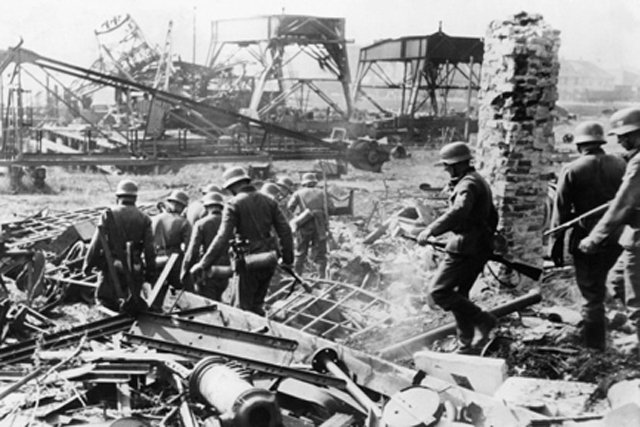Battle of the Atlantic
- The first British Atlantic convoys set out. Three protected routes are established, two from Liverpool and from the Thames to the Atlantic, and one from the Thames and the Firth of Forth. The convoy system has already been reintroduced on the east coast. Although escorts can only be provided as far as 12.5 degrees West they do provide effective protection against U-boats. Many of the faster ships and some particularly slow ones do not sail in convoy at this stage or later in the war. During 1939 almost all the U-boat successes are from such 'independents'.
- U-33 sinks the steamer Olive Grove (4060t) off the Bay of Biscay 250 miles southwest of Fastnet. The survivors are picked up the American steamer Washington.
- U-34 sinks the steamer Pukkastan (5809t) 70 miles southwest of Land's End. The crew is picked up by Dutch steamer Bilderdyck.
- The steamer Gartavon (1777t) is sunk by U-47 170 miles southwest of Cape Finisterre. The entire crew is picked up by the Swedish tanker Castor.
Poland
- After 7 days of desperate defense and inflicting heavy German casualties, the Polish naval base at Westerplatte surrenders. The old battleship Schleswig-Holstein begins a daily bombardment of Hela, another Polish naval base. The Polish command decides that it will be impossible to hold the line of the Narew although the order to do so has only been in force for one day. The forces in the Narew area are to retire to the Bug.
- Marshal Smigly-Rydz moves his HQ from Warsaw temporarily to Brest-Litovsk.
Aftermath at the Westerplatte |
 |
Western Front
French patrols cross the German frontier near Saarlouis, Saarbrücken and Zweibrücken. The French mobilization is too slow and their tactical system too inflexible to permit any grander offensive operation. This is the beginning of what is called the 'phoney war', where armies face each other without fighting waiting for some diplomatic effort to ease the tensions. These gentle probings continue until 17 September when a larger advance is meant to be made but is in fact cancelled because the Polish collapse makes it pointless.
[